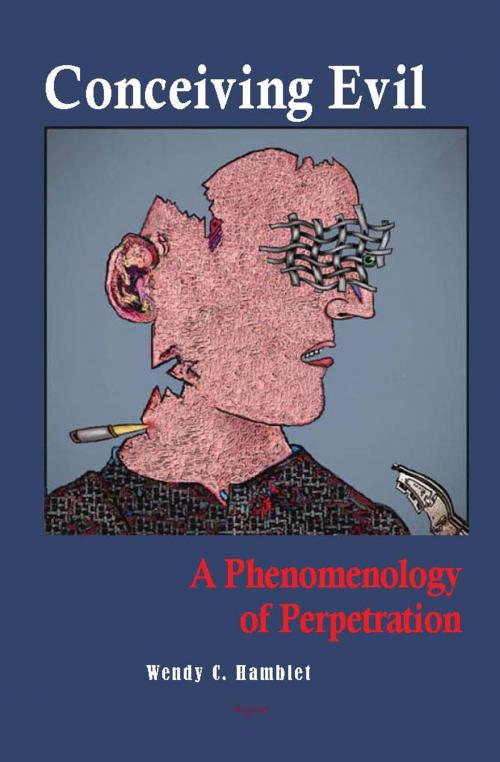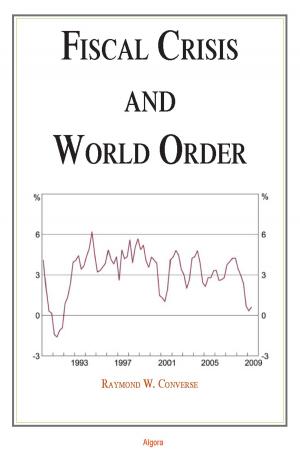Conceiving Evil
A Phenomenology of Perpetration
Nonfiction, Health & Well Being, Psychology, Emotions, Social & Cultural Studies, Social Science| Author: | Wendy C. Hamblet | ISBN: | 9781628940954 |
| Publisher: | Algora Publishing | Publication: | January 5, 2015 |
| Imprint: | Algora Publishing | Language: | English |
| Author: | Wendy C. Hamblet |
| ISBN: | 9781628940954 |
| Publisher: | Algora Publishing |
| Publication: | January 5, 2015 |
| Imprint: | Algora Publishing |
| Language: | English |
When conflict is understood positively as the confrontation of differences, an unavoidable and indeed desirable consequence of the rich tapestry of earthly life, then a discussion can open as to how to navigate the countless confrontations of difference in the most skillful way. Through this lens, violence comes into view as the least skillful means of responding to, and working with, difference, since violence tends to 'rebound' and leaves both victims and perpetrators worse off—shameful and vengeful.
Philosopher Wendy C. Hamblet argues that the radically polarized and oversimplified worldview that sorts the phenomena of the world into 'good guys' and 'evil others' is a framework as old as human community itself, and one that undermines people's own moral infrastructure, permitting them to take up the very acts that they would readily demonize as 'evil' in others. One's own violent responses to the human condition come to be reframed from unskillful and undesirable actions to valiant heroic reactions. In short, those who see 'evil' in others are far more likely to do 'evil,' resorting to the least skillful means for navigating difference—violence.
In theory, violence is demonized as 'evil' in popular and criminological discourse and calls forth 'rebounding' like responses in the form of acts of vengeance in individuals and punitive responses in state institutions. However, punishment is itself defined as an 'evil' inflicted by a legitimate authority upon a wrongdoer in compensation for a wrong done. This leads to the conundrum that the state, as much as the vigilante, must necessarily undermine its own legitimacy by taking up the very acts that it deems as evil in its enemies and punishes in its deviant citizens. By reframing conflict positively, Hamblet introduces a new way of thinking about difference that allows the reader to appreciate (rather than tolerate) difference as a desirable feature of a multicultural, multi-religioned, multi-gendered world. This resituates the discussion of conflict such that conflict response styles can be viewed as more and less skillful means of navigating impasses in a world of differences.
When conflict is understood positively as the confrontation of differences, an unavoidable and indeed desirable consequence of the rich tapestry of earthly life, then a discussion can open as to how to navigate the countless confrontations of difference in the most skillful way. Through this lens, violence comes into view as the least skillful means of responding to, and working with, difference, since violence tends to 'rebound' and leaves both victims and perpetrators worse off—shameful and vengeful.
Philosopher Wendy C. Hamblet argues that the radically polarized and oversimplified worldview that sorts the phenomena of the world into 'good guys' and 'evil others' is a framework as old as human community itself, and one that undermines people's own moral infrastructure, permitting them to take up the very acts that they would readily demonize as 'evil' in others. One's own violent responses to the human condition come to be reframed from unskillful and undesirable actions to valiant heroic reactions. In short, those who see 'evil' in others are far more likely to do 'evil,' resorting to the least skillful means for navigating difference—violence.
In theory, violence is demonized as 'evil' in popular and criminological discourse and calls forth 'rebounding' like responses in the form of acts of vengeance in individuals and punitive responses in state institutions. However, punishment is itself defined as an 'evil' inflicted by a legitimate authority upon a wrongdoer in compensation for a wrong done. This leads to the conundrum that the state, as much as the vigilante, must necessarily undermine its own legitimacy by taking up the very acts that it deems as evil in its enemies and punishes in its deviant citizens. By reframing conflict positively, Hamblet introduces a new way of thinking about difference that allows the reader to appreciate (rather than tolerate) difference as a desirable feature of a multicultural, multi-religioned, multi-gendered world. This resituates the discussion of conflict such that conflict response styles can be viewed as more and less skillful means of navigating impasses in a world of differences.















